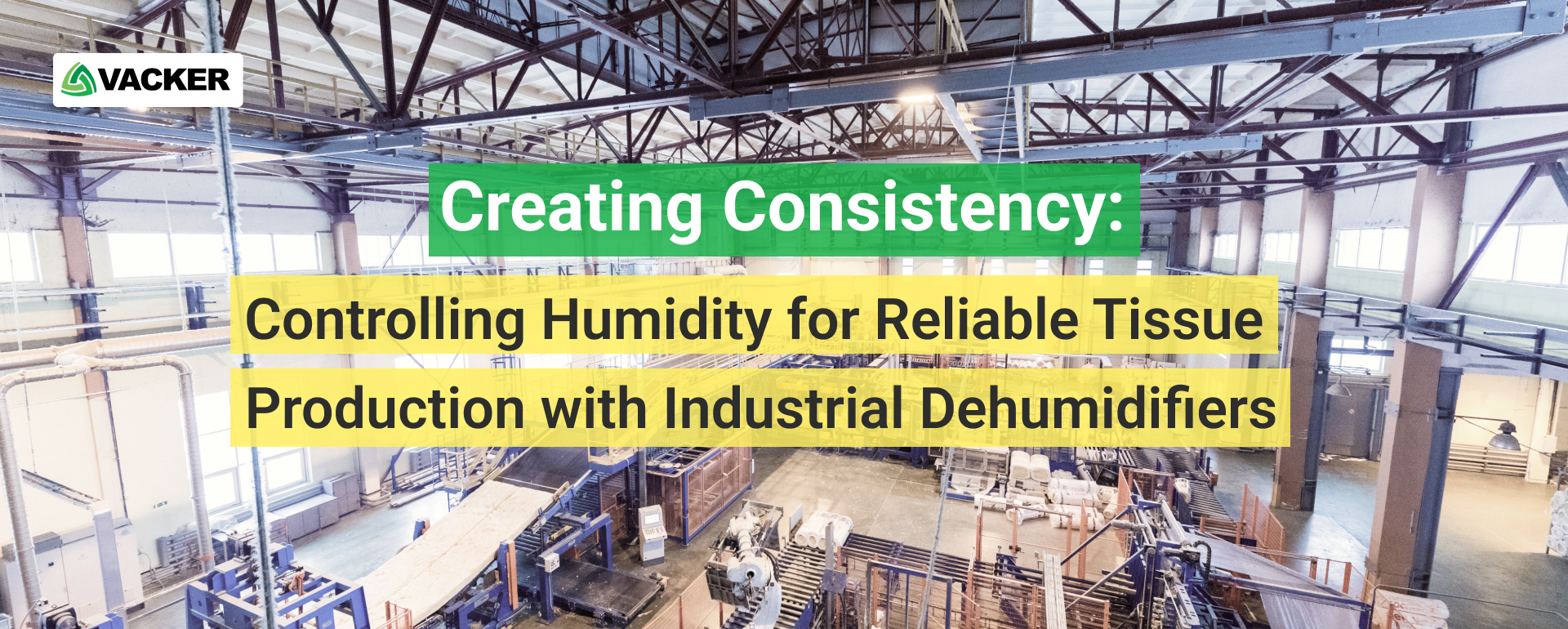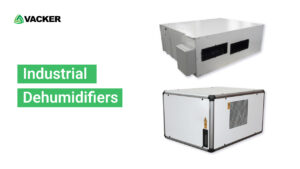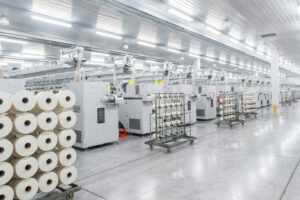Creating Consistency: Controlling Humidity for Reliable Tissue Production with Industrial Dehumidifiers

An often underestimated yet vital element in sectors such as tissue production is the management of humidity. Elevated humidity levels can exert a harmful influence on the caliber of tissue goods, giving rise to problems such as product deterioration, reduced shelf life, and hindered production efficiency.
Tissue manufacturing involves intricate processes that demand a controlled environment. Humidity fluctuations can greatly impact the quality and characteristics of the final product. High humidity levels can lead to excessive moisture absorption by the tissues, causing them to become weak and prone to tearing.
On the other hand, low humidity levels can result in static electricity buildup, affecting the folding and stacking of tissues. This highlights the need for a stable and controlled humidity environment throughout the production cycle.

Understanding the Role of Humidity in Tissue Manufacturing
Before delving into the significance of industrial dehumidifiers, it’s essential to comprehend how humidity affects tissue production. Tissue products, including paper towels, facial tissues, and toilet paper, are highly sensitive to moisture. Excess humidity in the production environment can lead to numerous problems, such as:
Quality Degradation– High humidity can cause paper products to absorb moisture from the air, leading to a decrease in quality and texture.
Microbial Growth– Humid environments are conducive to the growth of mold, mildew, and bacteria which can not only affect the quality of the tissues but also pose health risks to consumers.
Production Efficiency– Excessive humidity can slow down the paper drying process, extending production cycles, and reducing overall efficiency.
The Role of Industrial Dehumidifiers
Industrial dehumidifiers play a pivotal role in creating and maintaining the ideal humidity conditions required for tissue production. By regulating moisture content, industrial dehumidifiers offer several benefits that directly contribute to consistent tissue production:

1. Quality Assurance
Industrial dehumidifiers ensure that the humidity remains within the specified range, preventing issues like uneven moisture distribution, weak fibers, and compromised product integrity.
2. Production Efficiency
Maintaining optimal humidity levels with dehumidifiers enhances the efficiency of the tissue manufacturing process. The streamlined production process of tissue production translates to higher output and reduced downtime, ultimately boosting overall productivity.
3. Regulatory Compliance
Many industries, including tissue production, are subject to stringent regulatory standards. Industrial dehumidifiers help manufacturers meet these standards by providing a controlled environment that aligns with the necessary regulations.
Choosing the Right Dehumidifier
Selecting the appropriate industrial dehumidifier for a tissue factory requires careful consideration of various factors, including the size of the production area, the desired humidity level, and the specific production processes. There are different types of dehumidifiers available, such as desiccant dehumidifiers and refrigerant dehumidifiers, each with its own advantages and applications.
As the manufacturing arena progresses, the significance of industrial dehumidifiers progressively amplifies, steering innovation and setting a benchmark for excellence in tissue production.
Explore Vacker’s array of dehumidifiers, profoundly effective in establishing unwavering consistency within tissue factories.

Leave a Reply